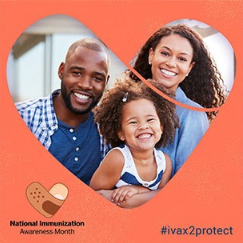
With so much focus on the COVID-19 vaccines this year, I thought we might take a moment to review some of the other important adult vaccines and their general schedule. All adults need immunizations to help them prevent getting and spreading serious diseases that could result in poor health, missed work, medical bills, and not being able to care for family. Protection from some childhood vaccines can wear off over time. You may also be at risk for vaccine-preventable disease due to your age, job, lifestyle, travel, or health conditions. For more information, you can visit the CDC’s site on recommended vaccines for adults. The CDC has an Adult Vaccine Assessment Tool which will provide a list of recommended vaccines based on your answers to some specific questions about you and your health.
Annual Flu (Influenza) Vaccine: While flu activity was unusually low through the 2020-2021 season, likely due to COVID-19 mitigation measures (e.g. face masks, staying home, hand washing, school closures, reduced travel and social distancing), with more people vaccinated and less strict mitigation measures this coming fall, protecting against flu will be all the more important. For adults, including those over age 65, The Village Doctor is again offering Flublok, a quadrivalent recombinant influenza vaccine which has shown greater efficacy over the last several years compared to the traditional quadrivalent vaccine. A study in The New England Journal of Medicine of over 9,000 participants showed Flublok to prevent 30% more cases of flu than the traditional vaccine. It is felt to be comparable (with some recent studies showing that it is better) in efficacy to the high-dose vaccine for those over age 65. While this is a slightly more expensive vaccine, we believe the benefit to be well worth it. Flu vaccine should be available at the end of August / early September.
Tetanus, diphtheria, and pertussis (“Tdap”): Every adult should get a Tdap vaccine once if they did not receive it as an adolescent to protect against pertussis (whooping cough), and then a Td (tetanus, diphtheria) or Tdap booster shot every 10 years. In addition, women should get the Tdap vaccine each time they are pregnant, preferably at 27 through 36 weeks. If you’ve had a deep or dirty wound, give your physician a call – in addition to these booster recommendations, a tetanus booster is typically recommended in this case if your last booster was > 5 years ago.
Shingles: Almost 1 out of every 3 people in the United States will develop shingles in their lifetime. Your risk of shingles increases as you grow older. Some people develop chronic pain in the area of a prior shingles outbreak, which can be a devastating nerve-type pain. The new 2-dose series Shingrix vaccine is recommended at age 50 years or older to protect against shingles.
Measles, Mumps and Rubella (“MMR”): One adult booster is recommended for patients born after 1958 who do not have evidence of immunity to measles, mumps or rubella (e.g. documentation of receipt of MMR vaccine or laboratory evidence of immunity). MMR is contraindicated during pregnancy or with severe immunocompromising conditions. Some patients at higher risk for infection (college students, international travelers or close personal contacts of immunocompromised persons who lack immunity) should receive a 2-dose series.
Meningococcal vaccine: First-year college students who live in residential housing (if not previously vaccinated at age 16 years or older) and military recruits should receive 1 dose. Some immunocompromised patients (asplenia, HIV infection, complement inhibitor use) should receive a 2-dose series and revaccinate every 5 years if risk remains.
Human papillomavirus (HPV) vaccination: Protects against sexually-transmitted HPV-related warts and cancers (cervical, anal). Recommended for all people up through age 26 years, as well as some adults age 27-45 years (if prior exposure to HPV is considered to be low).
Pneumococcal Vaccination: Recommended at age 65 or older. In addition, those with chronic medical conditions (chronic heart excluding hypertension, lung, or liver disease, diabetes), alcoholism or smoking are recommended to have 1 dose prior to age 65. Those with severe immunocompromising conditions (e.g. congenital or acquired 6- and T-cell deficiency, HIV infection, solid organ transplant, asplenia) should also have additional boosters.
Hepatitis A: All children are now recommended to be immunized against hepatitis A, with routine vaccination advised since 2006. If you are an adult and are unsure of your immunization status, a blood test can look for immunity. This vaccine series is typically a 2-part series (there is a 3-part series combined with hepatitis B vaccine) recommended for travelers to regions where food hygiene may be a concern or for some patients with chronic disease.
Hepatitis B: All children are now recommended to be immunized against hepatitis B, with routine vaccination advised since the 1990s. If you are an adult and are unsure of your immunization status, a blood test can look for immunity. This vaccine series is typically a 3-part series recommended for some travelers, immunocompromised patients, healthcare workers and those with sexual exposure risk.
Review of your immunization recommendations is a part of our Village Doctor annual exam review. Please be sure to let us know where you have obtained prior vaccinations so that we can maintain up to date recommendations for you.
References:
https://www.cdc.gov/flu-burden/php/data-vis/2020-2021.html
https://www.cdc.gov/vaccines/schedules/hcp/imz/adult.html#note-hepa
https://www.cdc.gov/vaccines/events/niam/index.html
Jennifer Abrams, MD, July 31, 2021


